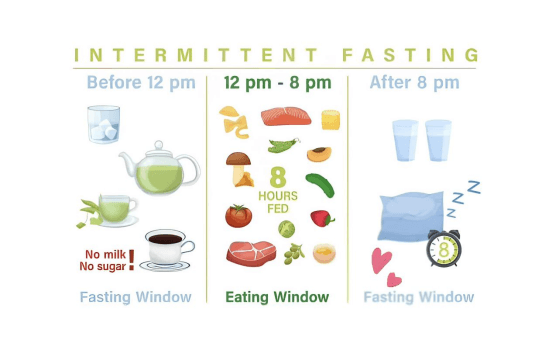Nutrition & Diet: Health Benefits And Challenges Of Intermittent Fasting
So here's a breakthrough : In 2025, Intermittent fasting (IF) would be among the best recommended approaches over others with a difference in time in background. After all, the strictest “eat on a schedule” protocol has now trickled down from LA's fitness experts to East Coast–based desks. There are those who swear that IF reverses aging while preserving the heart and even clarifying the mind. But not all are so certain; there is plenty of concern about sustainability and that some hidden health issues might emerge. I have been reading studies and speaking with nutritionists and everyday faster to determine: is intermittent fasting the golden ticket to health or simply a passing fancy?
How to adapt ideal States: Research Jest of intermittent fasting and metabolic health in real life There are scientific backing and proofs to this effect. So, one effect of intermittent fasting is to accelerate — and not alter significantly — things we already knew about healthy eating. It's real, but like so many things, it has its own challenges, from hunger pangs to "what-is-long-term-use" questions. And while it's simple enough that it puts many people's blood pressure under control, that same simplicity has led to many people missing a key detail.
Why this conclusion though? Let's break it down. First, the hype, then the science, and now, the stories of real-life people.
On the North American Intermittent Fasting Craze
Intermittent fasting did not come out of nowhere. It's been an intriguing little experiment that took off right across North America in the last few years. According to the National Institute on Aging, the American towns particularly hit it, and Canada is not far behind. The evidence is all over social media: hundreds of #IntermittentFasting posts on Reddit and Instagram. “I lost 15 pounds in three months of 16:8-feeling light as a feather,” said one reddit user. An Instagram user posted her before-and-after photos—accompanied by, “Fasting returned my energy. Who says 40 looks like 60?" Such anecdotes are not just bragging. They play on a much deeper longing for better health. The whole thing is really simple eat ONLY at specific times — fasting for 16 hours and eating for the remaining 8 (16:8) or eating normally 5 days a week and calorie restricting on 2 (5:2). Your body burns stored fat when you are fasting and bam—you lose weight and a bunch of other benefits. It's simple, accommodates busy lifestyles and doesn't require obsessing over every last calorie.
But of course there's drama. There are those who call it a health revolution, others who call it just “hunger marketing.” Short-term victory is obvious (who is winning the elections?) long-term validation? Until now a bit hazy. is that science good, or are we all hunger for nothing?

The Science: The Mechanics of Fasting
So here's the skinny: Normally, your body metabolizes food into energy (glucose), storing what's left as fat. But when you fast, the glucose gets depleted, so your body switches to burning fat for fuel and produces ketones as a result. This is where the magic happens: this “metabolic switch.” Harvard's David Sinclair says fasting activates your cells' cleanup crew, autophagy, allowing it to remove junk, and this may slow aging and ramp metabolism. Fasting also can reduce bad cholesterol and blood pressure, the American Heart Association points out.
"Genuine: 2024: James, a 38-year-old coder based in Chicago, tested a 5:2 fast. He was a full tub and tired. Three months later? 203. Down twenty pounds, more energy, better blood work. “I used to hit a wall at 2 o'clock,” he said. “Now I'm on point until I check out.” He wrote on Reddit: “First week sucked, but now? I feel reborn.” And it's not simply a matter of weight. Instagram's full of people saying fasting frees their minds. “I am sharper at 16:8 — meetings now don't drag like they used to,” one user wrote. Science bears this out as well: At Johns Hopkins, researchers led by Mark Mattson discovered that fasting can increase levels of brain chemicals that potentially enhance memory and improve mood.
The Catch: Not Everything Is Smooth Sailing
But let's be honest — fasting is difficult. Not fun: Hunger, fatigue, dizziness. One Twitter user complained, “Did 16:8, felt like I was starving. Almost quit.” “I was a grump the first few days,” James admitted. My wife nearly made me stop.” These bumps typically go away in a week or two, but they challenge your willpower.
Bigger worries? Who it's for, and long-term effects Robert Lustig of UC San Francisco warns in Nature that fasting isn't for everyone — pregnant women, for example, or those with low blood sugar or eating disorders could be harmed. Long fasts may screw up women's cycles. And rebound weight gain? It's real. According to the AHA, 30% of faster will gain back the weight within a year of ceasing. As Mattson states bluntly, “Fasting works if you stick with it and eat well. Skipping meals and bingeing on junk? No dice.”
And there's Sarah, a 32-year-old mother of one in Toronto. She experimented with 16:8 to drop baby pounds. Week one: down 8 pounds. Week two: headaches and anxiety soared. “I thought fasting would cool me out,” she wrote on Instagram. “Instead, I'm wiped.” It turns out that her low blood sugar made it a poor fit for her. She quit, and rightfully so. The lesson of her story: Fasting is not one size fits all.
Tips to Tackle the Challenges
Nutritionists have tricks to simplify fasting. Mattson recommends beginning slowly — a 12-hour fast, then a 12-hour eating window, followed by 16:8. Drink lots of water — at least 2 liters a day — to combat fatigue. And when you do eat, think quality: protein, veggies, healthy fats. Lustig says, “Replacing fries after fasting? You're toast.” James got it down to three daily walks of 30 minutes each, a meal of chicken and oats and low-GI foods. Sarah, however, didn't do the prep and paid for it.
Community helps too. Reddit's r/intermittentfasting is a treasure trove — recipes, progress pics, pep talks. “Watching someone go from 200 to 150 keeps me motivated,” one user wrote. It's like a virtual support group, one that cuts the quit rate.

The Future of Fasting
Fasting not slowing down. Tech's getting in on the action—Fitbit's developing an app that'll schedule fasting windows based on your movement and sleep. AI could even customize plans to your metabolism. James is fully signed up: “Fasting returned control to me.” Sarah got into a groove with yoga and balanced meals: “Health's not one-size-fits-all. Find your vibe.”
These tales show that fasting is not only about numbers — it's about getting back in touch with your body. In our go-go-go universe, it's a pause button. But remember what Sinclair told me: “Fasting not magic; it's unlocking what's already there.” Whether you're fresh or seasoned it's worth a try. Maybe it won't change your life, but it might get you a little closer to your best self.
